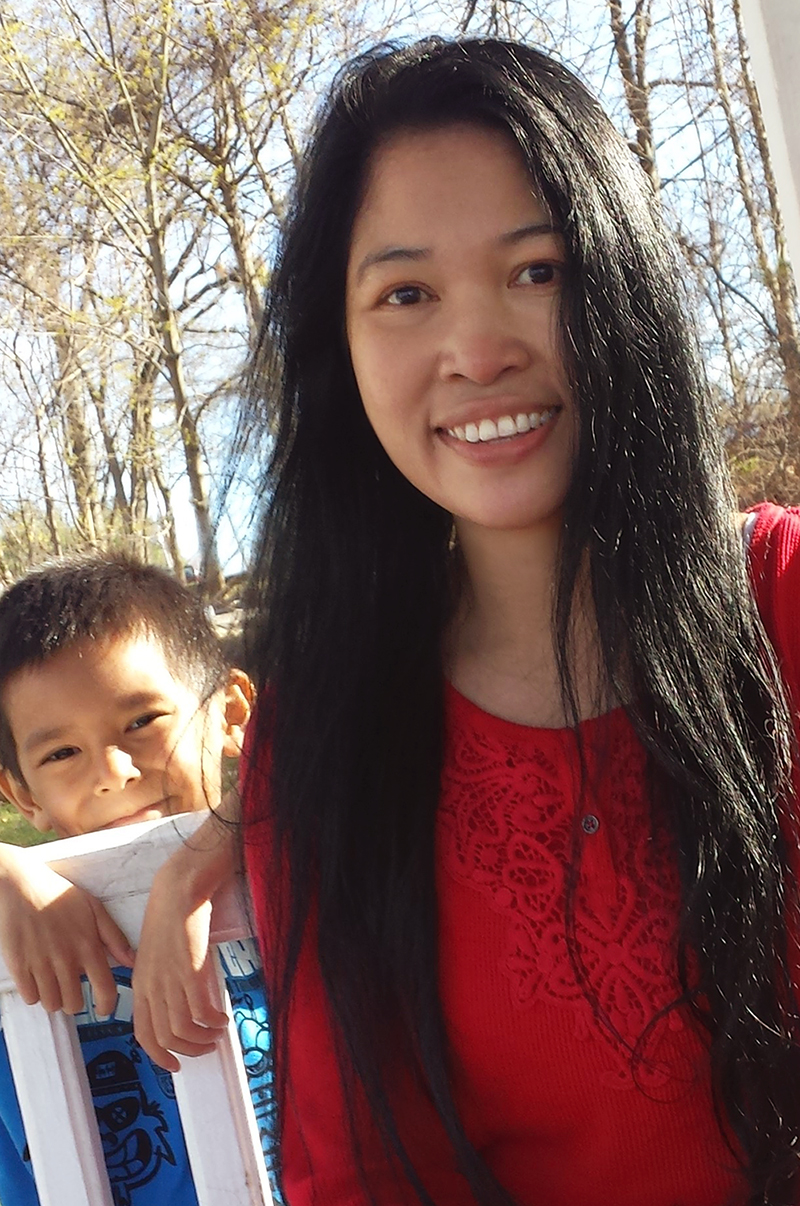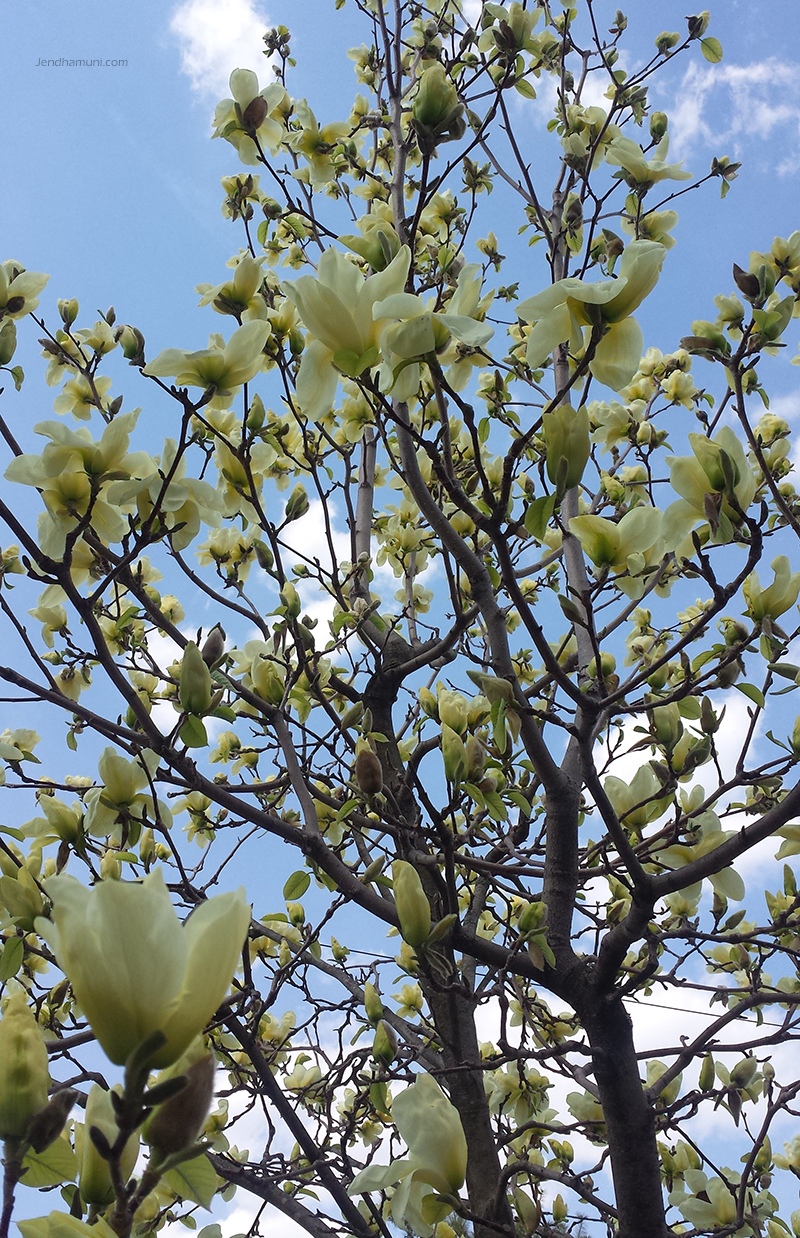
Siddhartha liked to watch what was happening and think about different things. One afternoon his father took him to the annual Ploughing Festival. The king started the ceremony by driving the first pair of beautifully decorated bullocks. Siddhartha sat down under a rose-apple tree and watched everyone. He noticed that while people were happily enjoying themselves, the bullocks had to work terribly hard and plough the field. They did not look happy at all.
Then Siddhartha noticed various other creatures around him. He saw a lizard eating ants. But soon a snake came, caught the lizard, and ate it. Then, suddenly a bird came down from the sky, picked up the snake and so it was eaten also. Siddhartha realised that all these creatures might think that they were happy for a while, but that they ended up suffering.
The king did not want his son to think about deep things in life too much, because he remembered that the wise men had predicted that his son might one day want to leave the palace and become a monk. So, in order to distract him, the king built Siddhartha a beautiful palace with a lovely garden to play in. But this did not stop the prince from thinking about the suffering and unhappiness that he noticed around him.
 Siddhartha grew up to be a handsome young man of great strength. He was now of an age to get married. To stop Siddhartha from thinking of leaving home, King Suddhodana arranged for him to be married to his own beautiful cousin, Princess Yasodhara.
Siddhartha grew up to be a handsome young man of great strength. He was now of an age to get married. To stop Siddhartha from thinking of leaving home, King Suddhodana arranged for him to be married to his own beautiful cousin, Princess Yasodhara.
Following the ancient tradition, Siddhartha had to prove how brave he was to be worthy of Yasodhara. In the presence of her parents he was asked to tame a wild horse. Siddhartha tamed the horse not by beating it, as some suitors might, but by talking to the horse to calm it and stroking it gently. Yasodhara wanted to marry the prince, and no one else. They were married in a great ceremony. Both were only sixteen years old.
To stop the prince from thinking about unhappiness or leaving home, King Suddhodana built a pleasure palace for Siddhartha and Yasodhara. Dancers and singers were asked to entertain them, and only healthy and young people were allowed into the palace and the palace garden. The king did not want Siddhartha to know that everybody gets sick, grows old and will die. But in spite of the king’s efforts, the prince was not happy. He wanted to know what life was like for people who lived outside the palace walls.
Finally, the king allowed Siddhartha to go on short visits to the nearby towns. He went with his attendant, Channa. On his first visit Siddhartha saw a white haired, wrinkled man dressed in rags. Such a sight surprised him, as he had never seen anyone old before. Channa explained to him that this man was old and that everyone will be old one day. Siddhartha felt frightened by that and asked Channa to take him back home. At night, he could not sleep and he kept on thinking about old age.
Although Siddhartha felt frightened by the vision of getting old, he wanted to see more of the world outside. On his next visit, he saw a man lying on the ground and moaning. Out of compassion, he rushed over to the man. Channa warned him that the man was sick and that everyone, even noble people like Siddhartha or the king could get sick.
On the third visit, Siddhartha and Channa saw four men carrying another man on a stretcher. Channa told Siddhartha that the man was dead and was going to be cremated. He also said that no one can escape death, and told the prince that everyone will die one day. When they returned to the palace, Siddhartha kept on thinking about what he had seen. Finally, he made a strong decision to find a way out of the suffering of old age, sickness and death.

Some time later, while the prince was riding in the garden, he saw a man in a yellow robe. He noticed that the man looked very peaceful and happy. Channa explained to him that the man was a monk. The monk had left his family and given up his desire for pleasures to search for freedom from worldly suffering. The prince felt inspired by the sight of the monk and began to want to leave home to search for freedom in the same way. That day, his wife gave birth to a lovely baby boy. Although he loved the boy, Siddhartha could not rejoice because he wanted to become a monk. He realised that now it would be more difficult for him to leave home.
From the day when he decided that he wanted to leave the palace the prince lost all interest in watching the dancing girls and other such pleasures. He kept on thinking instead about how to free himself and others from sickness, ageing and death. Finally, he decided he had to leave the palace and his family and become a homeless monk, in order to understand life and what caused suffering.
One night, when everyone in the palace was asleep, Siddhartha asked Channa to prepare his horse, Kanthaka. In the meantime he went into the room where Yasodhara and their newborn boy Rahula slept. He was filled with loving-kindness towards them and promised himself that he would come back to see them. But first he had to understand why all creatures suffer, and find out how they could escape from suffering.
In the silence of the night, Prince Siddhartha mounted Kanthaka. Accompanied by Channa, he left the palace and the city of Kapilavatthu. They stopped at a river some distance from the city and the prince took off his expensive dress and put on the robes of a monk. Then he told Channa to take the horse back to the palace. At first, both Channa and Kanthaka refused to go back, but Siddhartha insisted that he had to go on alone. With tears rolling down his face, Kanthaka watched as the prince walked out of sight.
So, at the age of 29, Siddhartha began the homeless life of a monk. From Kapilavatthu, he walked south to the city of Rajagaha, the capital of the Magadha country. The king of this country was named Bimbisara. The morning after Siddhartha arrived, he went to the city and obtained his meal for the day by begging.
Source: BuddhaNet
Link to this article





















